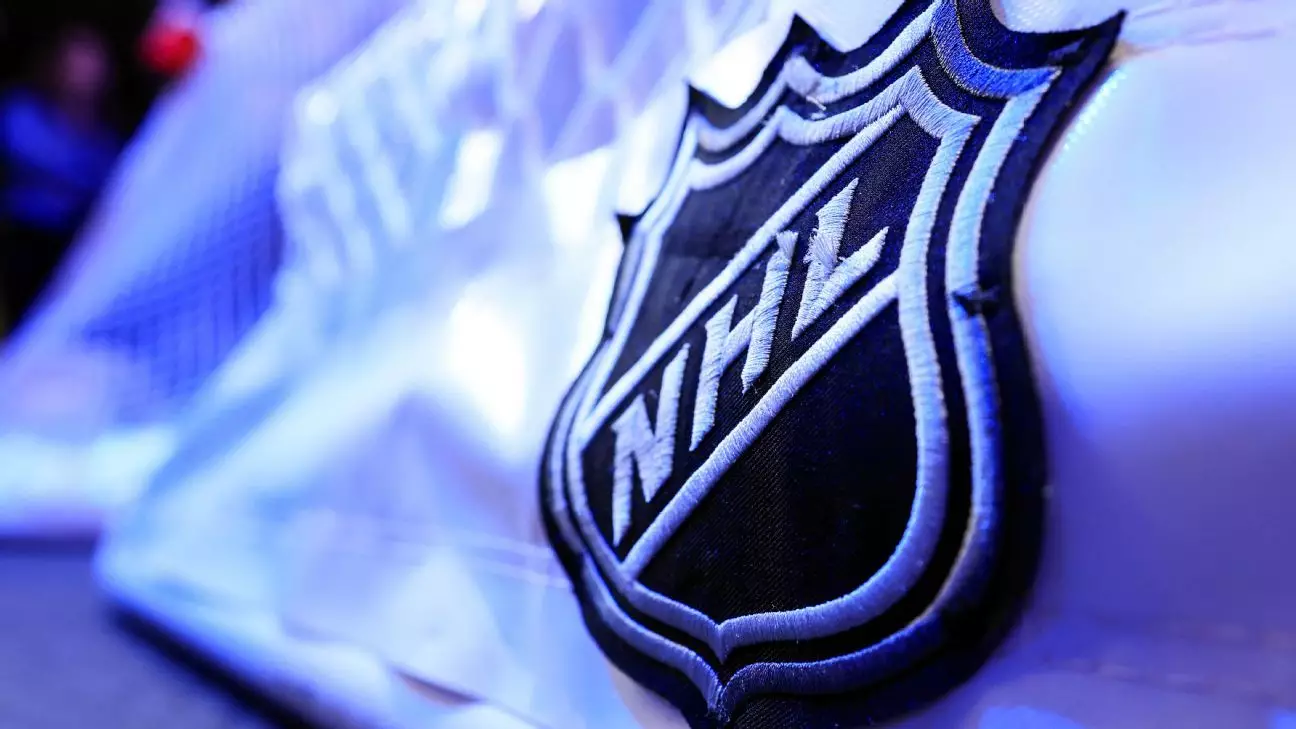In today’s hyper-political climate, even sports are not free from the heavy hand of diplomacy. Recently, a seemingly innocuous conversation between Presidents Donald Trump and Vladimir Putin about hockey has surfaced, reminding us that sports can act as a powerful conduit for conversation and reconnection between countries. The suggestion of organizing hockey matches between the U.S. and Russia—two nations that have been caught up in a complex and often antagonistic relationship—highlights the potential for athletics to serve as a common ground, albeit one often fraught with the risks of political overtones.
The Kremlin’s summary of the discussion revealed that both leaders were interested in fostering interaction through hockey, which serves as more than just a game; it represents culture, national pride, and rivalry. While the NHL echoed a neutral stance, citing their exclusion from the negotiations, this exchange nonetheless raises an important question: Can hockey truly pave the way for better international relations, or is it merely a façade for deeper discord?
The Hockey Landscape: Past Collaborations
Historically, hockey has been a platform for exchanges that transcend geopolitical tensions. The NHL and KHL have collaborated in the past, with exhibition games bringing together players and fans from both sides. These events stand as a reminder of the camaraderie that can flourish through sport, even when political forces threaten to overshadow it.
However, the camaraderie we once saw is now shadowed by ongoing conflict. The NHL’s suspension of dealings with the KHL following Russia’s invasion of Ukraine illustrates the treacherous landscape of international sports today. The ban placed by the International Ice Hockey Federation (IIHF) has effectively isolated Russia from international competition, intensifying the chasm between nations. With Russia’s absence being felt across tournaments and leagues, the potential for hockey to be a bridge has been sadly diminished. The vacuum left in the spirit of competition raises concerns: what happens when sport is used as a political tool rather than a source of unity?
The Significance of the IIHF Decision
The IIHF’s decision to maintain the ban on Russia and Belarus through the 2025-26 season cannot be understated. By prioritizing safety and security to ensure fair competition, they also risk creating an enduring distance between these countries and the international hockey community. This act is steeped in the ethics of international relations, where the ramifications resonate far beyond the ice rink.
The looming possibility of the 2026 Winter Olympics further complicates this scenario. As venues prepare to welcome athletes from around the world, the IOC’s final ruling on Russia’s participation will play a pivotal role in determining how nations perceive each other in the context of international sporting prestige. The Olympics have always symbolized peace, yet under current conditions, they risk becoming a battleground for political ideologies instead of an arena for athletic excellence.
The Role of Presidents in Sports Diplomacy
Trump’s recent outreach to Team USA before their match against Canada serves as an interesting dichotomy in the sports-diplomacy narrative. The timing of the call and the subsequent political fallout surrounding the match illustrates how intertwined sports and politics can become. National pride, tariffs, and even remarks about making Canada “the 51st state” add layers of complexity to what should be a celebration of skill and teamwork.
Canadian coach Jon Cooper’s comments on the heavy burden carried by his team serve as a poignant reminder: in sport, national identity and pride often take precedence, making the stakes incredibly high. For Team Canada, this match against the U.S. was not just about winning; it was about embodying the spirit of a nation amidst challenging political weather. This is the unique power of sports—it can amplify the narratives of nations.
Taking Hockey Beyond the Ice
As we ponder the possibilities of U.S.-Russia hockey matches, we must also consider the broader implications of such an endeavor. Can these events promote dialogue and understanding, or will they merely serve as another layer of political theater? The answer remains elusive, right alongside the ice that both builds bridges and fuels divides.
In an era where the impact of sports extends far beyond the ice rink, it’s crucial to recognize the responsibility that comes with that platform. Whether through camaraderie or contention, the world of hockey will continue to reflect the complexities of international relations. The dialogue has started, but the outcome remains to be seen.

